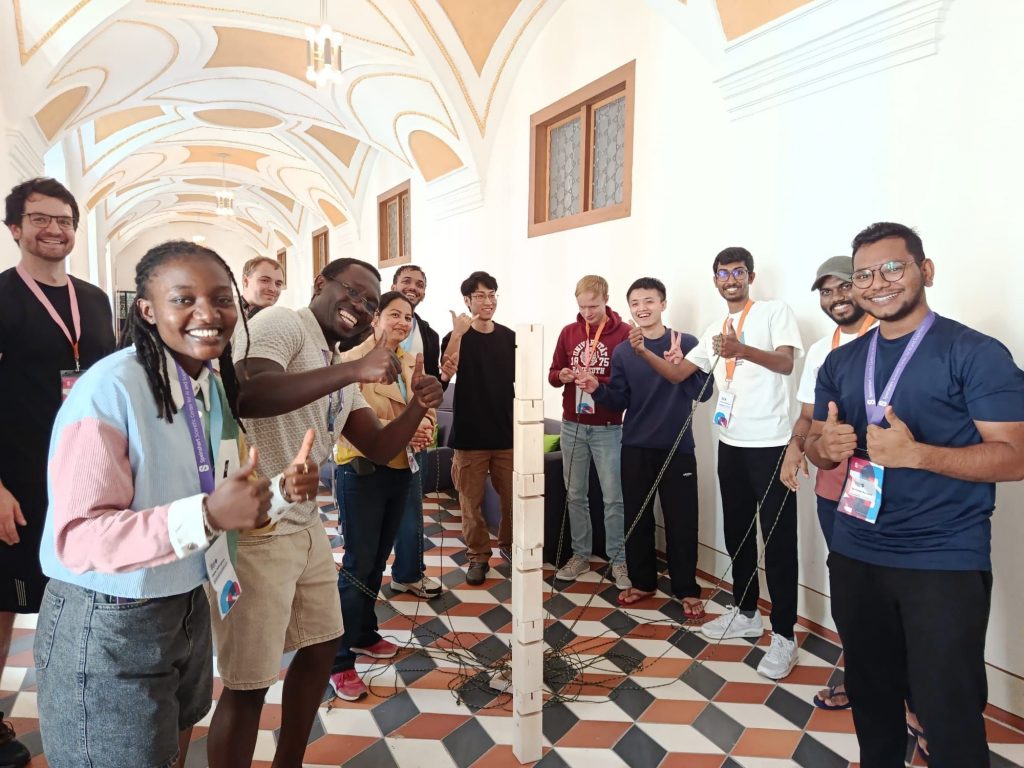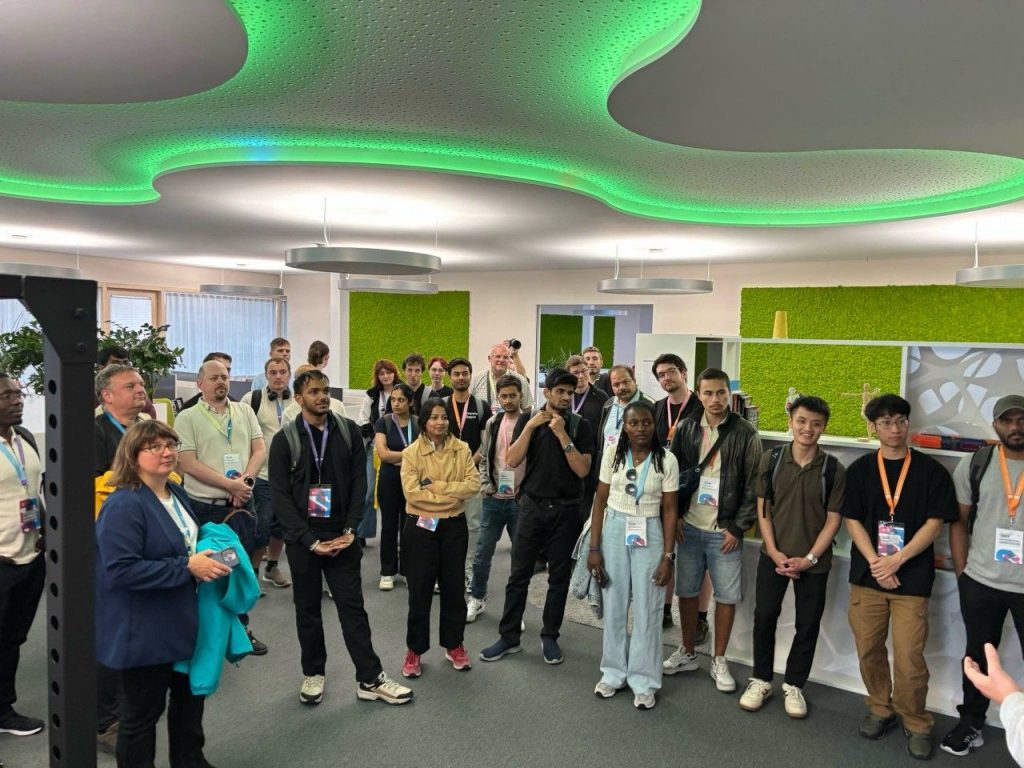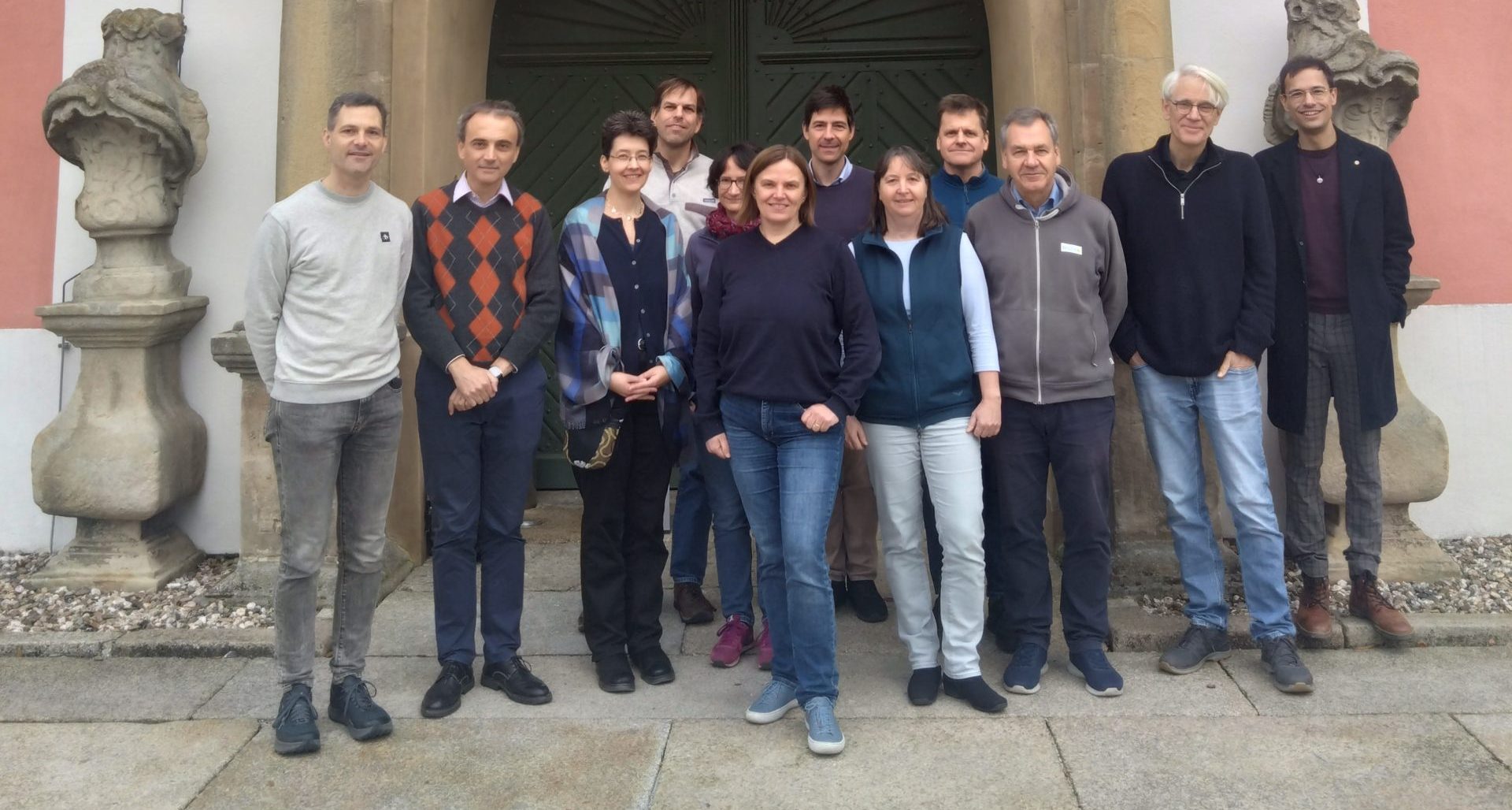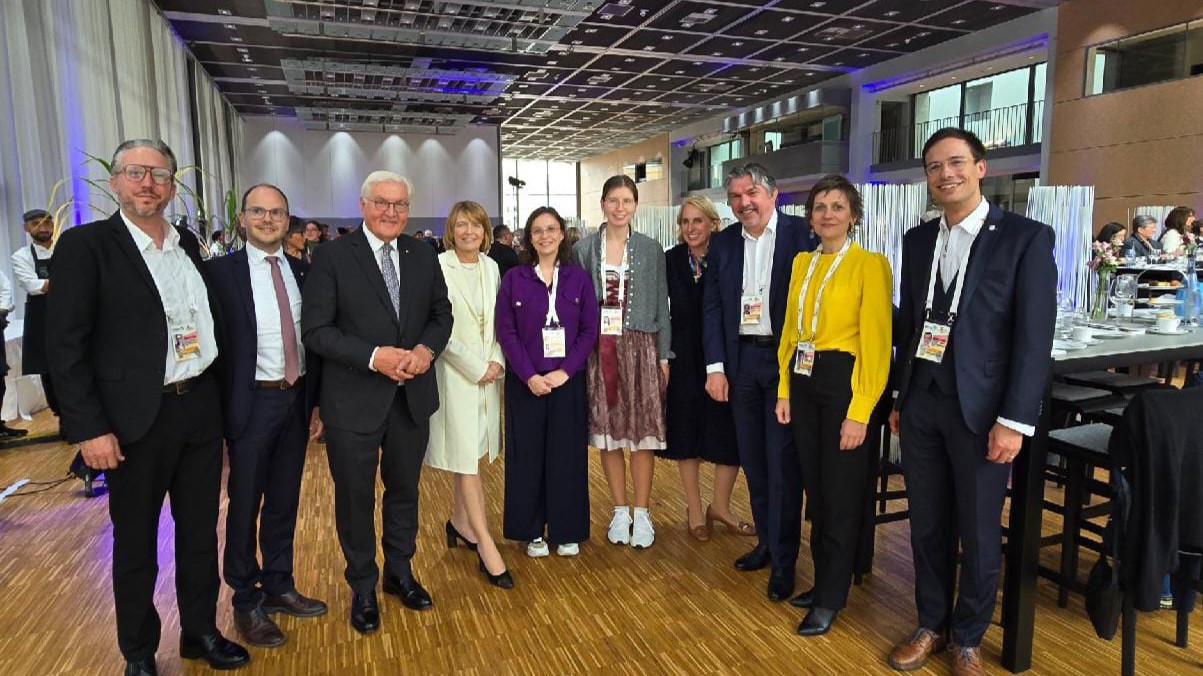For four days, Speinshart Monastery became the meeting place for young talents, renowned experts, and inspiring insights into the world of Artificial Intelligence. The AI Summer School 2025 offered a diverse program of keynotes, company visits, hands-on workshops, and a thrilling hackathon – leaving a lasting impression on everyone involved.
The first day was all about robotics. Two inspiring keynotes set the tone: Prof. Dr. Karel Košnar from the Czech Technical University in Prague guided participants from Asimov’s famous “Three Laws of Robotics” to the equally important “Three Rules for Roboticists,” while Dr.-Ing. Sebastian Reitelshöfer from FAU Erlangen-Nürnberg shared fascinating perspectives on both social and industrial robotics. One memorable takeaway: while humanoid robots often spark unease, cat-like machines tend to win people’s hearts instantly. In the afternoon, it was time to get hands-on. After an introduction to working with Niryo robots by Petr Neduchal and Marek Hruz, the students received their hackathon challenges. Mixed-university teams jumped straight into experimenting with the robots – the excitement in the room was infectious.

Day two focused on practice and industry applications. Thanks to the support of the Chamber of Industry and Commerce Regensburg for Upper Palatinate/Kelheim, led by Richard Brunner, participants visited several leading companies. A highlight was the factory tour at BHS Corrugated Maschinen- und Anlagen GmbH, where the group experienced first-hand how carton boxes are produced. After a shared lunch at the company restaurant, the journey continued to the Technological Institute for Applied Artificial Intelligence (TIKI) in Weiden. There, colleagues showcased practical use cases in digital business processes and gave a live demonstration of how large language models can support automated code generation. The students’ enthusiasm was so overwhelming that the organizers had to quite literally pull them onto the bus to make it back to Speinshart. Back at the monastery, the energy didn’t fade – hackathon projects continued late into the evening.
The third day highlighted the mathematical foundations of AI. Prof. Dr. Anton Schiela from the University of Bayreuth delivered a challenging but insightful keynote on optimization in machine learning. He gave participants a deeper understanding of what happens behind the scenes when models are trained – lifting the curtain on the “magic” of AI. Afterwards, the teams dove back into their projects, celebrating every successful implementation. To lighten things up, Marian Mure introduced a fun team-building game that sparked laughter, friendly competition, and stronger group spirit before everyone returned to coding with renewed energy.

The fourth and final day brought the big hackathon showdown. From early in the morning, teams worked with focus and determination to polish their presentations. Out of the original ten teams, six made it to the finals and presented their creative solutions with passion. Three teams were recognized by the jury, and the students also had the chance to vote for their favorite. The big winner of the day was Team “Robo Sapiens” – Patrik Holub, Timo Säckl, and Anshu Raj – who not only secured first place but also won the audience choice award.
The AI Summer School 2025 concluded with an inspiring finale, full of knowledge, collaboration, and unforgettable experiences. As the week came to an end, one question echoed among the participants: When will the next AI Summer School take place?
The multi-year, subject-oriented summer school series was conceived by the Bavarian-Czech Academic Agency in cooperation with the OTH Amberg-Weiden, the University of West Bohemia in Pilsen, and the Speinshart Scientific Center for AI and SuperTech. The Bavarian-Czech AI Summer School series is funded by the Bavarian State Chancellery through the Advisory Board for Cross-Border Cooperation with the Czech Republic.





Join the conversation